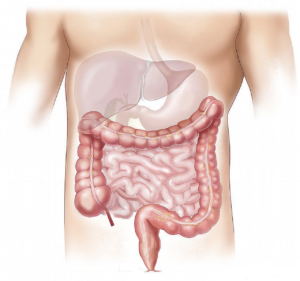Irritable bowel syndrome (IBS) is a common condition here in Orlando, but there are a few misconceptions about the condition. At Gastroenterology Consultants of Central Florida, we want you to know the facts about diagnosing and treating IBS to help improve the quality of life for those suffering with the condition.
IBS Is Not In Your Head
Years ago, patients with irritable bowel syndrome were often dismissed as being hysterical or depressed, but this is not true.
 “Irritable bowel syndrome (IBS) is a common disorder that affects the large intestine. Signs and symptoms include cramping, abdominal pain, bloating, gas, and diarrhea or constipation, or both. IBS is a chronic condition that you’ll need to manage long term,” Mayo Clinic.
“Irritable bowel syndrome (IBS) is a common disorder that affects the large intestine. Signs and symptoms include cramping, abdominal pain, bloating, gas, and diarrhea or constipation, or both. IBS is a chronic condition that you’ll need to manage long term,” Mayo Clinic.
Symptoms of IBS include
Abdominal pain, bloating or cramping that is related to bowel movement.
How often you have a bowel movement changes
The appearance of your bowel movement changes
IBS is becoming more common
IBS isn’t often talked about, leaving those who suffer with it feeling isolated. But it is more common than many think, affecting between 25 and 45 million people in the United States.
According to the Mayo Clinic the exact cause of IBS isn’t known, but there are several factors that appear to play a role include:
Muscle contractions in the intestine
The walls of the intestines are lined with layers of muscle that contract as they move food through your digestive tract. Contractions that are stronger and last longer than normal can cause gas, bloating and diarrhea. Weak intestinal contractions can slow food passage and lead to hard, dry stools.
Nervous system
Abnormalities in the nerves in your digestive system may cause you to experience greater than normal discomfort when your abdomen stretches from gas or stool. Poorly coordinated signals between the brain and the intestines can cause your body to overreact to changes that normally occur in the digestive process, resulting in pain, diarrhea or constipation.
Severe infection
IBS can develop after a severe bout of diarrhea (gastroenteritis) caused by bacteria or a virus. IBS might also be associated with a surplus of bacteria in the intestines (bacterial overgrowth).
Early life stress
People exposed to stressful events, especially in childhood, tend to have more symptoms of IBS.
Changes in gut microbes
Examples include changes in bacteria, fungi and viruses, which normally reside in the intestines and play a key role in health. Research indicates that the microbes in people with IBS might differ from those in healthy people
Treatments For IBS
IBS can affect just about every aspect of your life. There are a variety of treatment options available. It is important to see a Gastroenterology for a comprehensive treatment plan. Which can make the condition much more manageable and improve the quality of your life.
The Mayo Clinic suggests “focuses on relieving symptoms so that you can live as normally as possible.”
Mild signs and symptoms can often be controlled by managing stress and by making changes in your diet and lifestyle. Try to:
 Avoid foods that trigger your symptoms
Avoid foods that trigger your symptoms
Eat high-fiber foods
Drink plenty of fluids
Exercise regularly
Get enough sleep
Your doctor might suggest that you eliminate from your diet:
High-gas foods
If you experience bloating or gas, you might avoid items such as carbonated and alcoholic beverages and certain foods that may lead to increased gas.
Gluten
Research shows that some people with IBS report improvement in diarrhea symptoms if they stop eating gluten (wheat, barley and rye) even if they don’t have celiac disease.
FODMAPs
Some people are sensitive to certain carbohydrates such as fructose, fructans, lactose and others, known as FODMAPs — fermentable oligosaccharides, disaccharides, monosaccharides and polyols. FODMAPs are found in certain grains, vegetables, fruits and dairy products.
